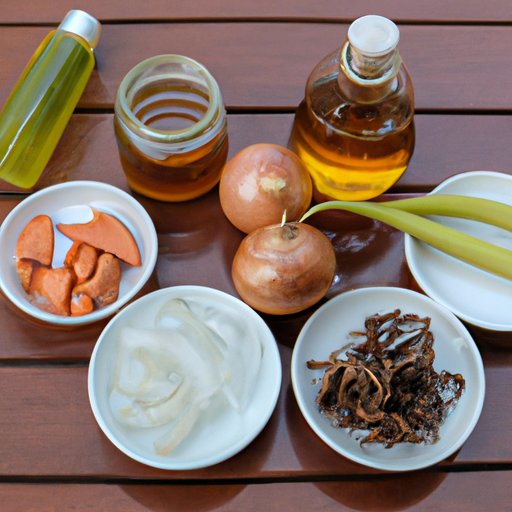
Top 5 Natural Remedies for Treating Ringworm
If you or a loved one have ever suffered from ringworm, you know the discomfort and inconvenience it can cause. Ringworm is a fungal infection that can affect the skin, nails, and scalp. Ringworm is known for its circular, sometimes raised, rash that can be itchy, scaly, and red in appearance. Common treatments for ringworm include over-the-counter and prescription medications. However, natural remedies can also be effective in treating ringworm. In this article, we will explore the top 5 natural remedies for treating ringworm.
Tea Tree Oil
Tea tree oil has antimicrobial properties that can help fight against ringworm. It has been used for centuries as a natural remedy for various skin ailments.
To use tea tree oil to treat ringworm, mix a few drops of tea tree oil with a carrier oil, such as coconut oil or olive oil. Apply the mixture directly to the affected area with a cotton ball or swab. Repeat this process a few times daily until the rash disappears.
While tea tree oil is generally considered safe, some people may experience skin irritation or an allergic reaction. It should not be ingested.
Garlic
Garlic is known for its antimicrobial properties, which can help fight against the fungus that causes ringworm. It is also believed to have anti-inflammatory properties that can help alleviate some of the symptoms of ringworm.
To use garlic to treat ringworm, crush a few garlic cloves and mix with coconut oil or aloe vera gel. Apply the mixture to the affected area. Repeat this process a few times daily until the rash disappears.
Garlic is generally considered safe, but it can cause skin irritation in some people. It should not be ingested in large amounts.
Apple Cider Vinegar
Apple cider vinegar may be effective in treating ringworm because it has antifungal properties. It is also believed to help restore the skin’s pH balance, which can make it more difficult for the fungus to survive.
To use apple cider vinegar to treat ringworm, mix equal parts apple cider vinegar and water. Apply the mixture to the affected area with a cotton ball or swab. Repeat this process a few times daily until the rash disappears.
While apple cider vinegar is generally considered safe, it can cause skin irritation if used undiluted. It should not be ingested in large amounts.
Coconut Oil
Coconut oil is known for its antimicrobial properties, which can help fight against the fungus that causes ringworm. It is also believed to have anti-inflammatory properties that can help alleviate some of the symptoms of ringworm.
To use coconut oil to treat ringworm, apply a small amount of coconut oil to the affected area a few times daily until the rash disappears.
Coconut oil is generally considered safe, but it can cause skin irritation in some people. It should not be ingested in large amounts.
Aloe Vera
Aloe vera has antimicrobial properties that can help fight against the fungus that causes ringworm. It is also believed to have anti-inflammatory properties that can help alleviate some of the symptoms of ringworm.
To use aloe vera to treat ringworm, apply a small amount of aloe vera gel to the affected area a few times daily until the rash disappears.
Aloe vera is generally considered safe, but it can cause skin irritation in some people. It should not be ingested.
Conclusion
When it comes to treating ringworm, natural remedies can be just as effective as traditional treatments. Tea tree oil, garlic, apple cider vinegar, coconut oil, and aloe vera are all natural remedies that can help fight against ringworm. However, it’s important to keep in mind that not all natural remedies will work for everyone. If the rash persists or worsens, it’s important to seek professional medical attention. Additionally, it’s always a good idea to consult with a medical professional before trying any of the remedies mentioned in this article.




